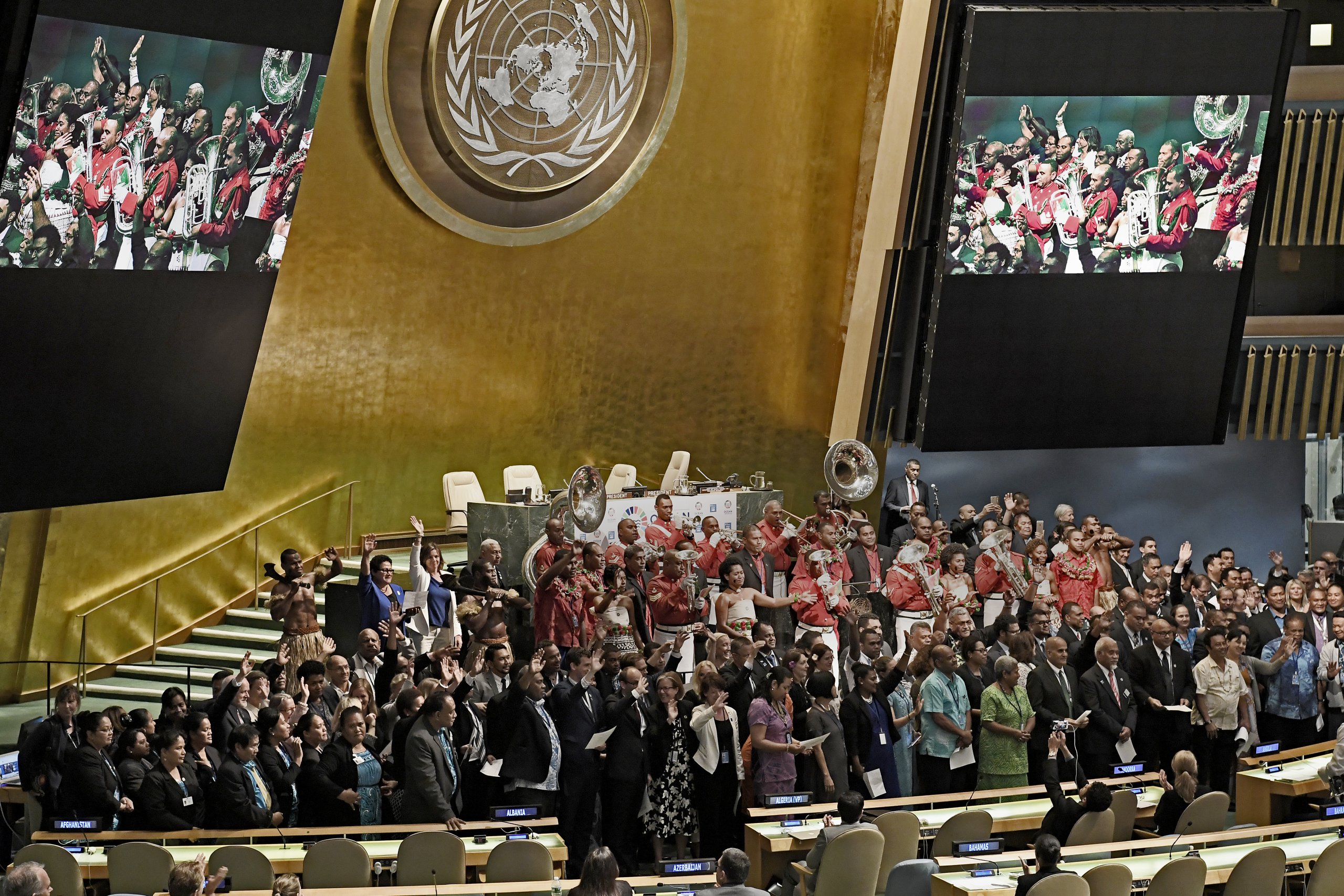The United Nations Ocean Conference which took place in New York from June 5-9 was the first international conference dedicated to the implementation of Sustainable Development Goal 14 on conserving and sustainably using the oceans, seas and maritime resources for sustainable development.

Co-chaired by Fiji and Sweden, the conference closed with a joint “call for action” issued by member states after a week of partnership dialogues, voluntary commitments and side events intended to highlight the position of the ocean in the sustainable development agenda.
“The most important outcome of this conference is that everyone can see that the problems of Oceans are interconnected,” said Co-President Isabella Lövin of Sweden, speaking on the final day of the conference. “In the past, the oceans have been on the periphery of discussion on climate and sustainable development. The conference brought it to the centre.”
The conference – which sought to build momentum for the implementation of SDG 14 as a central, rather than isolated, component of the 2030 Agenda for Sustainable Development – produced an intergovernmentally agreed Call for Action, a registry of more than 1,328 voluntary commitments and key messages from its partnership dialogues.
The call for action, and the conference discussions will be shared at the UN High-Level Political Forum on Sustainable Development (HLPF) in July.
Among the main themes of the conference were putting an end to the conflict between economic activities and ocean health, building strong partnerships grounded in existing legal frameworks on Marine Protected Areas (MPAs) and fisheries management, deepening our knowledge base and regional governance.
The importance of the science policy interface was highlighted in the partnership dialogue on science, in particular in the context of the need for politicians to heed scientific advice, and use it as the basis for decision making even when it is not welcome.
Portugal and Kenya announced that they would co-chair the next Ocean conference in 2020.
ICSU convened and coordinated a number of activities at the conference, in partnership with Future Earth, and with a view to focus attention on its new report “A Guide to SDG Interactions: From Science to Implementation“, which contains a chapter on ocean governance. Furthermore, one of the key messages of the report – that no goal should be looked at in isolation from other goals and that understanding interlinkages across goals and targets is key to delivering the SDGs as an indivisible whole – was closely aligned with the key messages of the conference.
ICSU also organised a side event on the key interactions of SDG14, which was moderated by Future Earth Sweden Global Hub Director Wendy Broadgate. Ocean literacy and the media was the subject of another side event jointly convened by ICSU and Future Earth where discussion ranged widely from the latest research findings on how to communicate on oceans and ocean health, to science fiction prototyping of ocean futures.
During the conference, a series of blog posts were published highlighting the conclusions and key messages of the ICSU report.
IISD featured an interview with Future Earth’s Broadgate in its daily round-up videos, in which the interactions work is referenced.
On behalf of the Major Group for Science and Technology, Craig Starger of Future Earth, Colorado, made a statement in plenary urging member states to take into consideration the “web of complex interactions” and reiterating how the science and technological community can help the world meet targets for a sustainable healthy ocean. Starger drew on the ICSU report which argues that to meet this ambition, researchers must first understand how ocean health is connected to other sustainability endeavours – from curbing climate change to shifting consumption behaviours.
Starger also highlighted the Ocean Knowledge-Action Network, a new research collaboration for building solutions to the problems facing the ocean today. The KAN was launched at an event at the conference. For more information on the statement, read here.
The President of the General Assembly, Peter Thompson, said at the close of the conference: “The ocean has united us. In doing so, the ocean conference has initiated broad momentum for all 17 SDGs of the 2030 Agenda. Strong commitments have been made for investment in ocean science and technology and knowledge transfer that will greatly support vulnerable countries and thereby us all.”